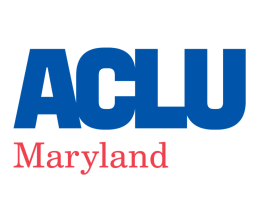Blueprint for Maryland’s Future: Focus the Formula
Under Maryland’s Constitution, it is the State’s responsibility to ensure that all students receive an education that meets State adequacy standards. It's time for the State of Maryland to finally ensure Black and Brown students have the resources they need to reach their dreams by lifting the burden of inequitable education funding.
Bradford v. Maryland State Board of Education
Maryland is standing on the threshold of a new era in how we educate our children. ACLU of Maryland is fighting for a full and equitable funding formula that will deliver the level of education all students need to get an excellent and free public education guaranteed by the state Constitution.
Maryland’s current education funding formula (“Thornton” Commission and 2002 Bridge to Excellence law) was developed after court rulings in the ACLU’s 1994 lawsuit, Bradford v. Maryland State Board of Education, which aimed to achieve a “thorough and efficient” education for Baltimore’s children. That formula phased in funding through 2008 but was cut back in the recession, leading to an estimated $1.6 billion annual gap as of Fiscal Year 2015.
Expert consultants for the state, Augenblick, Palaich and Associates, Inc. (APA), recommended in 2016 that an additional $2.9 billion was needed for Maryland school districts to be adequately funded – $1.9 billion from the state and $1 billion from local governments.
Legislation in 2016 established the Commission on Innovation and Excellence ("Kirwan" Commission), a 25-member body chaired by Dr. William “Brit” Kirwan, to review and update the current funding formula for Maryland schools. The Commission’s charge is to make recommendations for improving education in Maryland through funding, policies, and resources that will prepare students to “meet the challenges of a changing global economy, to meet the State’s workforce needs, to be prepared for postsecondary education and the workforce, and to be successful citizens in the 21st century.” To complete this work, the Commission utilized APA’s report and the 9 Building Blocks for a World-Class Education System by the National Center on Education and the Economy.
The "Kirwan" Commission released its preliminary report in January 2018 providing recommendations in five policy areas: (1) early childhood education; (2) highly qualified and diverse teachers and leaders; (3) college and career readiness pathways; (4) more resources for at-risk students; and (5) governance and accountability. Subsequently, during the 2018 legislative session, HB1415 Commission on Innovation and Excellence in Education was passed to begin implementing programs and funding from the recommendations. The Commission will issue its final report in late 2019.
ACLU will continue to provide feedback to the "Kirwan" Commission throughout the final report and will work to pass an updated, equitable formula in the 2020 legislative session.
FULL & EQUITABLE FUNDING
The ACLU of Maryland is committed to a “thorough and efficient” education for students across the state as guaranteed by the State Constitution. Here are our priorities for a new funding formula to meet the needs of Maryland students.

